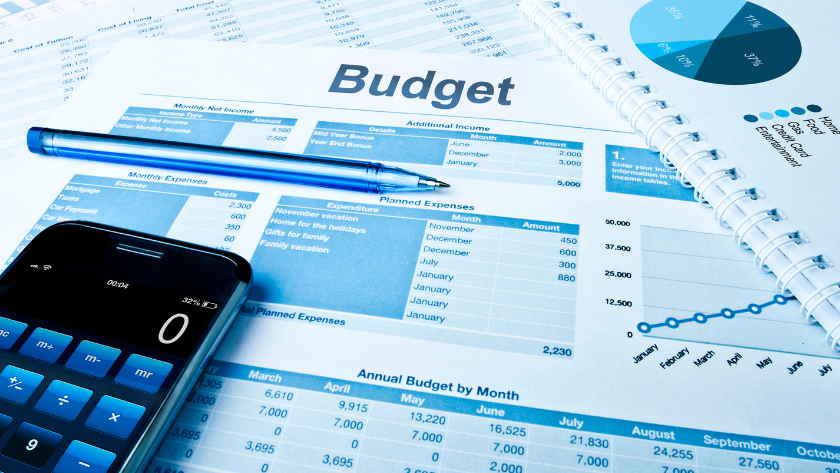When it comes to the significant financial decision of purchasing a car, it is absolutely essential to establish a clear and realistic budget before you even consider visiting a dealership. This not only keeps you from falling in love with a car that is far beyond your financial reach, but it also enables you to negotiate confidently and avoid being swayed by sales tactics. To facilitate this process and ensure that you make a financially sound decision, we have outlined a series of steps to assist you in determining exactly how much you can afford to allocate towards the purchase of a car.
- Calculate your monthly income
- Determine your monthly expenses
- Subtract your expenses from your income
- Consider the total cost of ownership
- Choose a car within your budget
- Factor in the cost of car insurance
- Consider the car’s resale value
- Think about future maintenance costs
- Factor in depreciation
- Think about unexpected costs
- Consider the car’s fuel efficiency
- Research the car’s reliability
1. Calculate your monthly income
This step entails a thorough evaluation of your monthly income sources. This isn’t just limited to your main employment salary, but should also encompass any other regular income streams you might have. For instance, if you have a side job, dividends from investments, rental income, or regular monetary gifts from family, these should all be included in your total monthly income calculation. It’s important to be comprehensive and accurate in this step, as it forms the basis of your budget and determines how much you can afford to allocate towards a car purchase.
2. Determine your monthly expenses
This step requires a detailed assessment of your monthly expenses. These are the regular and unavoidable costs that you incur each month. This includes your housing costs, which could be your rent if you’re leasing, or mortgage payments if you own your home. Another significant part of your monthly budget goes towards utilities. This covers electricity, water, gas, internet, and any other utility bills that you regularly pay. Food is another crucial factor, so your weekly or monthly grocery bills should also be added to this list. Furthermore, insurance premiums, which could be for health, home, or any other type of insurance you have, must also be included. Lastly, consider any other recurring costs. These can be gym memberships, streaming or digital subscriptions, public transportation or fuel costs, regular maintenance or service bills, and any other expenses that occur regularly. The more comprehensive and accurate you are in accounting for all these costs, the clearer picture you will have of your available budget for a car.
3. Subtract your expenses from your income
Once you’ve subtracted your monthly expenses from your total monthly income, you’ll arrive at a figure known as your disposable income. This is the amount of money you have at your disposal each month after all your necessary expenses have been taken care of. Now, as a general rule of thumb, it is highly recommended that you should not allocate more than 20% of this disposable income towards car-related expenses. This 20% should encompass everything related to your car, from your monthly car payment (should you choose to finance your car), to insurance costs, the money you spend on gas, and the budget set aside for regular maintenance and unexpected repairs.
Moreover, another widely accepted guideline is that the total value of all the vehicles you own should not exceed 50% of your annual household income. It’s crucial to understand that, unlike properties which may appreciate over time, vehicles are depreciating assets. The moment you drive your new car off the dealership lot, it begins to lose its value at a surprisingly fast rate. Therefore, it’s financially prudent to remember that cars are liabilities rather than assets.
4. Consider the total cost of ownership
It’s crucial to bear in mind that the cost of a car extends far beyond the initial purchase price listed on the sticker. This upfront cost is just the beginning. Over the lifetime of the vehicle, you’ll also need to account for the cost of insurance, which can vary significantly based on the car’s make and model, your driving history, and other factors. Maintenance costs are another critical component to consider. Regular services, repairs, and part replacements all add up over time, contributing to the total cost of ownership. Additionally, you can’t overlook the ongoing expense of fuel. Depending on the car’s fuel efficiency and the current price of gas, this can become a significant monthly expenditure. Therefore, when considering the affordability of a car, it’s essential to factor in these recurring costs to gain a comprehensive understanding of the financial commitment you’re making.
5. Choose a car within your budget
With a clear understanding of what you can afford, you are now ready to start the exciting process of shopping for a car that falls within your budget. As you embark on this journey, it’s vital to remember that the total cost of owning a car extends beyond the simple monthly payment. When assessing the affordability of a vehicle, you must factor in the total cost of ownership, which includes various other expenses. These additional costs could encompass everything from insurance and maintenance to fuel costs and registration fees. By keeping this holistic view in mind, you ensure that you are able to comfortably manage all the financial responsibilities that come with owning a car, thereby making a financially-sound and sustainable decision.
6. Factor in the cost of car insurance
The cost of car insurance can fluctuate significantly and is influenced by a multitude of factors, including the specifics of the vehicle you’re considering, such as its make and model, as well as your personal driving history. The insurance premium for a luxury sports car is going to be significantly higher than that for a conventional family sedan, for example. Likewise, if you have a clean driving record, you’re likely to be offered more favorable rates than someone with multiple traffic violations.
Before you make the final decision to purchase a particular car, it’s a wise idea to obtain multiple insurance quotes for that specific model. This will allow you to get a clearer picture of the ongoing costs you’ll be committing to. Contact several insurance companies or use online quote comparison tools to gather a variety of quotes. As insurance costs can represent a considerable portion of your ongoing vehicle expenses, this step is crucial in helping you make an informed decision and avoid any costly surprises down the line.
7. Consider the car’s resale value
It’s essential to note that not all cars depreciate at the same rate. Some vehicles lose their value significantly faster than others, which can greatly impact your financial situation if you plan on selling the car in the future. Depending on the length of time you intend to keep the car, it might be a wise financial decision to seek out a car known for maintaining a high resale value. In other words, cars that depreciate slowly will sell for a higher price than those that depreciate quickly, even after several years of use. This aspect of choosing a car is often overlooked but can be particularly important if you have any intention of reselling your vehicle in the future. Therefore, it’s recommended to do some research on the average depreciation rates of different car models and keep this information in mind when making your decision. A car with a high resale value could potentially save you a significant amount of money in the long run.
8. Think about future maintenance costs
It’s important to understand that some vehicles come with higher maintenance costs than others. This can be attributed to various factors such as the car’s make and model, the availability and cost of spare parts, and the complexity of the vehicle’s design and systems. Therefore, it’s crucial to conduct in-depth research into the average maintenance costs of the specific car you’re contemplating purchasing. This should include routine services and tune-ups, the replacement of wear-and-tear parts like tires and brakes, as well as more unpredictable costs that arise from mechanical issues or breakdowns. Once you have an understanding of these costs, factor them into your ongoing budget. This will provide a more complete picture of the true cost of owning the car, beyond just the initial purchase price or monthly payments, and ensure that you are making a well-informed and financially sustainable decision.
9. Factor in depreciation
As underscored earlier, it’s pivotal to understand that all automobiles depreciate in value as time elapses; it’s a universal truth in the car industry. However, not all vehicles are created equal when it comes to this inevitable process. Certain makes and models are known to depreciate at a more accelerated pace than others, meaning their market value plummets faster. This factor could significantly influence your long-term financial outlook, particularly if you intend to sell the car in the foreseeable future. Opting for a model that is known for its strong residual or resale value might be an astute move. These vehicles have a proven track record of retaining a larger proportion of their original cost over time, implying that you could recoup a higher portion of your initial investment when you decide to sell. This could be an integral aspect to consider if you anticipate trading in the vehicle or selling it privately at some point down the line. Therefore, when making your selection, considering the vehicle’s rate of depreciation should not be overlooked but rather should be a key part of your decision-making process.
10. Think about unexpected costs
Owning a car often comes with unforeseen expenses that can catch you off guard if you’re not adequately prepared. These unexpected costs can take the form of sudden repair needs that weren’t anticipated, or even fluctuations in insurance rates that can alter your monthly financial commitments. Such situations underline the necessity of exercising restraint and prudence when deciding how much of your budget to allocate towards purchasing a car.
Spending beyond your means on a car is a risky proposition, as it potentially leaves you in a precarious financial situation where you might not be able to afford necessary repairs or maintenance. This could lead to your vehicle being unusable, thereby defeating the purpose of owning a car in the first place. Therefore, it’s advisable to purchase a car that sits comfortably within your budget, instead of stretching your finances to their limits.
Furthermore, it’s crucial to have a contingency plan for dealing with these unexpected expenses. Setting aside a portion of your budget to create a financial safety net for unforeseen car-related costs is a prudent strategy. This reserve fund can be a lifesaver when you’re faced with sudden repair bills or a spike in insurance premiums.
Thus, the process of determining what car you can afford shouldn’t just be about the cost of purchasing the vehicle. It should also factor in the potential for unanticipated expenses related to car ownership. By taking this comprehensive view, you can ensure a smoother and more stress-free experience as a car owner.
11. Consider the car’s fuel efficiency
The fuel efficiency of a car is an integral aspect to consider when determining how much car you can afford. The rate at which a car consumes fuel can directly impact your regular monthly expenses. If you’re a frequent driver, commuting daily for work or regularly embarking on long drives, fuel costs can quickly accumulate and constitute a sizable portion of your monthly budget. More fuel-efficient vehicles, while they may come with a higher initial purchase price, can often prove to be more economical in the long term. These vehicles are designed to maximize the distance they can travel on a single unit of fuel, thereby allowing you to drive more while using less fuel. This inherent efficiency can result in substantial savings on fuel over the life of the car, potentially offsetting the higher upfront cost. Therefore, when considering the overall affordability of a car, it’s essential to not just look at the sticker price, but also factor in the potential long-term savings that fuel-efficient vehicles can offer.
12. Research the car’s reliability
It’s important to note that certain cars have earned a reputation for their exceptional durability and reliability, which can lead to fewer required visits to the mechanic over the lifetime of the vehicle. This aspect can have a significant impact on your ongoing maintenance and repair costs. Therefore, before making your final decision, it is highly recommended to conduct thorough research into the car’s historical performance and longevity. Look for models that are celebrated for their robustness and dependability.
Check consumer reviews, reliability ratings from automotive experts, and forums where owners share their personal experiences with the car. This will give you a more comprehensive understanding of the car’s performance and maintenance needs. Pay special attention to any common issues or frequently needed repairs that may crop up repeatedly in your research.
Choosing a model known for its reliability can help minimize unexpected repair costs down the line and offer you more peace of mind as an owner. Moreover, reliable cars often have lower total cost of ownership and can provide a more satisfying ownership experience. They are less likely to break down unexpectedly, thereby providing a smoother and more efficient driving experience. This careful consideration can save you from potential headaches and significant expenses in the future, making it an essential aspect of the car-buying process.
Final Thoughts
One of the fundamental principles to keep in mind when contemplating the purchase of a car is that a car is a depreciating asset. This means that from the moment you drive it off the dealership’s lot, it will continuously lose value over time. Given this inherent characteristic of vehicles, it’s advisable to make a purchase decision that is financially sustainable, allowing you to comfortably manage the associated costs without overstretching your budget.
Making a wise car purchase involves buying a vehicle that you can comfortably afford, rather than pushing your financial resources to their limit. Initially, committing to a vehicle that requires a substantial portion of your monthly income may seem viable. However, in the long term, it could add unnecessary strain to your finances and hinder your ability to grow wealth. This is particularly true when considering ongoing costs such as maintenance, fuel, and insurance. Therefore, a sensible approach is to aim for a balance between desire and affordability, ensuring that your new car doesn’t become a financial burden.
Purchasing a car isn’t just about the initial cost that you pay at the dealership; it’s about the complete financial commitment that owning a vehicle entails. This is where the concept of Total Cost of Ownership (TCO) comes into play. The Total Cost of Ownership includes costs that go beyond the purchase price, such as the cost of insurance, regular maintenance, unexpected repairs, and fuel costs, among others. All of these factors contribute significantly to the overall cost of owning a car, and neglecting to consider them can lead to a skewed view of affordability.
When deciding on how much car you can afford, it’s crucial to take a comprehensive view of your finances. This involves a detailed assessment of your monthly income and expenses, as well as an understanding of your financial goals and obligations. By aligning your car purchase with your financial realities, you can avoid potential stress and ensure a more enjoyable car ownership experience.
To summarize, the process of determining how much car you can afford is not a decision to be taken lightly. It requires a detailed and honest examination of your financial situation and careful consideration of the total cost of car ownership. By taking the time to understand your budget and considering the long-term implications of your purchase, you can make a decision that is not only financially sound but also fulfilling.





